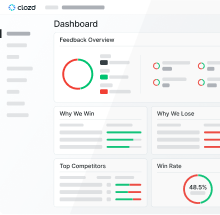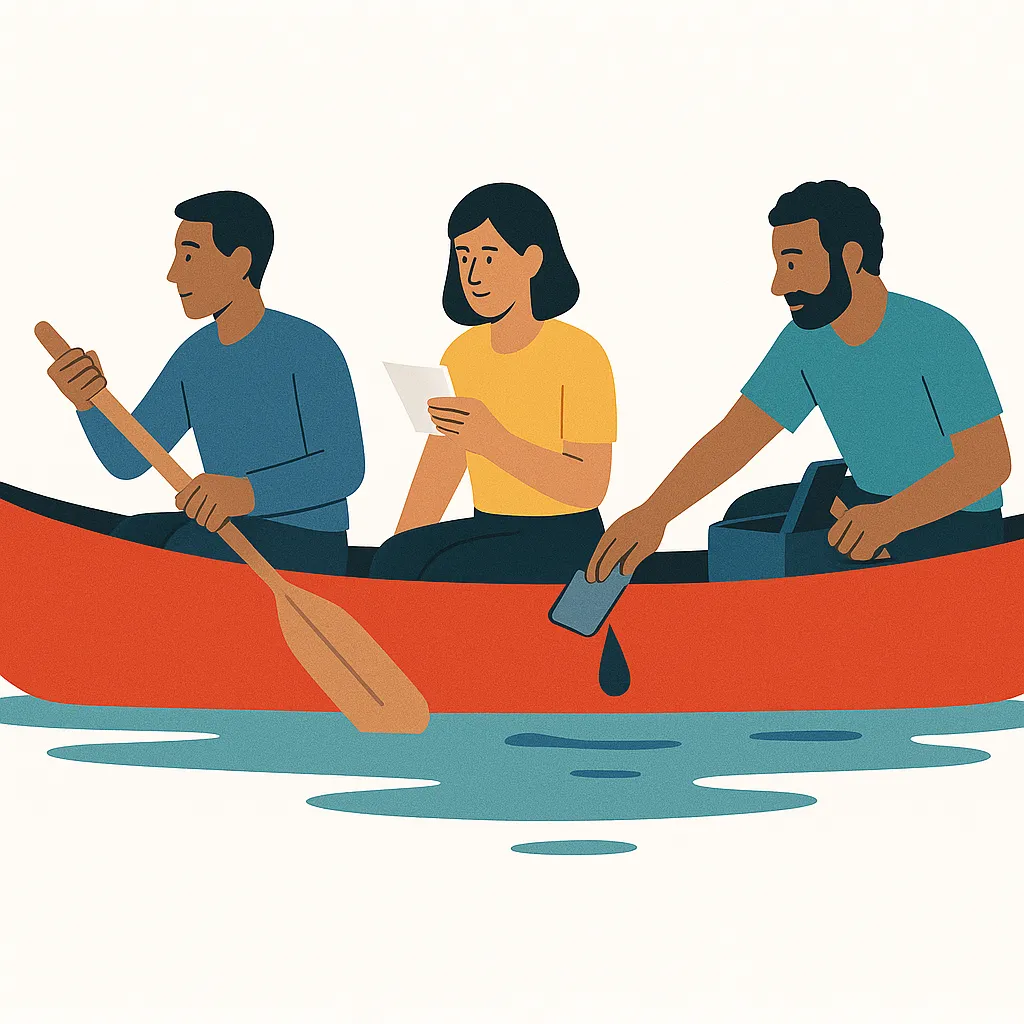
Harvesting candid and honest feedback from the decision-makers at won and lost accounts is an irreplaceable practice for companies that want an accurate and holistic understanding of why they win and lose.
As companies look to implement formal win-loss analysis, it's common to start internally rather than incurring the cost of hiring a third-party. In many cases, companies turn to their own product managers or product marketers to conduct the interviews. Unfortunately, most internally run win-loss initiatives fall short. Here's why:
1. Bias
The most important reason to outsource win-loss interviews is bias. It's a fact that your clients will be more candid, open, and unbiased when speaking with a neutral, third-party. If a member of your own team interviews them, the client will (in almost every case) hold back certain information. For example, you may think it's a great idea to have your product manager conduct the interview. "No one knows our products as well as she does," you might say. But, while the buyer may feel safe opening up about a problem with the sales experience, they will be much more guarded about critical product feedback.
2. Adoption
Having a neutral, third-party collect and synthesize the feedback also leads to greater adoption. Employees are more likely to embrace and implement critical feedback when it comes from a source that they trust as unbiased, such as a neutral third-party consultancy. If the interviews are handled by an internal party, it is likely that certain teams or departments will discount the feedback. They'll be reluctant to embrace the negative feedback about their area of the business. For example, the sales team may say, "Of course we're being blamed for losing this deal. The interview and analysis were conducted by the product team."
3. Bandwidth
Most companies underestimate the time commitment required for scheduling, conducting, transcribing, and analyzing win-loss interviews on a consistent basis. Product managers or product marketers already have a lot on their plates. What starts out as an exciting and meaningful initiative can quickly turn into a drag on time and resources that are needed elsewhere. As a result, most internally-run programs steadily fall to the wayside due to limited bandwidth and focus. Additionally, successful win-loss initiatives depend on a sufficient number of interviews to accurately represent your broader pipeline (industries, use cases, products, competitors, etc.). Even the most committed internal teams rarely have the bandwidth to conduct enough interviews to achieve a meaningful sample size.
4. Experience
Frequently, internal teams are inexperienced when it comes to managing and optimizing a win-loss initiative. Dedicated win-loss providers boast unique tools and experience that enable them to conduct more effective interviews, achieve higher participation rates, and be more efficient in scheduling and conducting a large number of interviews. These resources often include proven email templates and phone scripts for scheduling interviews, integrations with reward providers for automating incentives to interviewees, call recording and transcription software, analytical tools, etc. Most importantly, internal employees lack the benefit of hindsight or experience to design and manage the program effectively such as asking the right questions, tabulating the data effectively along the way, and synthesizing the findings in a meaningful format. Talented employees might be highly skilled and capable, but the task will be time-consuming and overwhelming. If you can't dedicate a talented employee to the initiative, it's best to outsource.
5. Longevity
Ultimately, most internally-run programs tend to burn out as the program owners shift their focus to other projects and/or because they move on to a new position or company. It's usually difficult to transition the program from one employee to the next without seeing a decline in quality, commitment or volume. As a result, the program gets neglected or discontinued. This is a devastating reality for many companies who thought they had a win-loss process in place, only to realize months or years later that there has been no output. Tapping a dedicated, experienced partner will ensure consistency and longevity.
For these reasons, and others, we frequently hear our clients say "we tried this internally and it just never worked." So, if there's one tip we can give you to ensure your win-loss initiative is a success, it's this: Find a qualified, experienced partner to conduct the interviews and analysis on your behalf. You'll save time, minimize headaches, collect more candid feedback from buyers, and ensure the long-term success of the program.
Feel free to contact Clozd more information about our innovative win-loss services and technology.











.svg)










.svg)

.svg)




